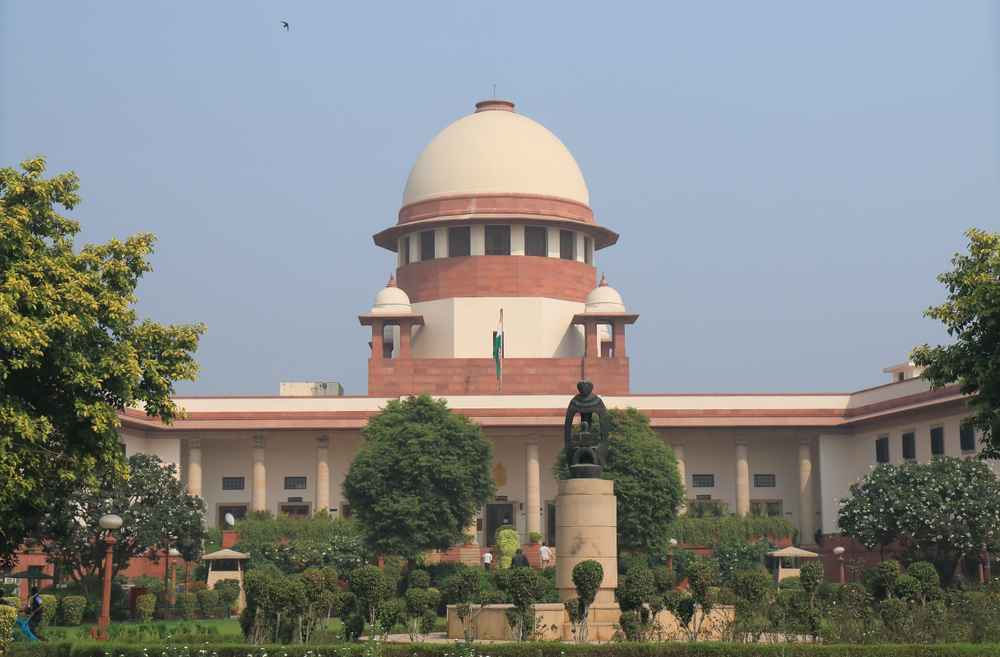The Supreme Court on Wednesday said there is “no merit in charging interest on interest” for the deferred loan payment installments during the moratorium period announced in the wake of the Covid-19 pandemic.
A bench headed by Justice Ashok Bhushan observed that once the moratorium is fixed it should serve the desired purposes and the government should consider interfering in the matter as it cannot leave everything to banks.
“Once the moratorium is fixed then it should serve the desired purposes and we see no merit in charging interest on interest,” the bench, also comprising Justice S.K. Kaul and Justice M.R. Shah orally observed.
The court then asked the Centre, the RBI and the Indian Banks’ Association (IBA) to come out with suitable policy guidelines to address the concerns of the people.
It posted the matter for further hearing to the month of August first week.
“The government can’t leave everything to banks. It should consider interfering in the matter. The central government can’t raise its hands in helplessness.
“The Centre can’t now say it is between banks and customers,” Justice Shah told solicitor-general Tushar Mehta during the hearing.
The bench was dealing with a PIL filed by UP-based businessman Gajendra Sharma questioning the constitutional validity of the RBI’s circular dated March 27, which provided a moratorium on the recovery of loans for six months during the lockdown, but at the same time did not grant any exemption in terms of the accumulated interest components.
The petitioner’s apprehension was that once the moratorium ended the customer would be saddled with additional interests on the accumulated loan and interest component of the moratorium period. Hence he had sought a direction that no interests should be collected for the entire moratorium period.
“If the Centre announced moratorium, it must ensure the benefits are given to customers purposefully. Customers haven’t availed themselves of the moratorium as they know they aren’t getting any benefits,” Justice Shah said.
The bench made the observations after Mehta appearing for the Union government pleaded by way of the government’s helplessness in the matter on the ground that even banks have to pay interest to depositors.
The RBI had also earlier filed an affidavit on the issue and said it would not be “prudent” for banks to forego their interests on deposits.
Mehta today told the court that the plea for waiver of interests during the moratorium period would risk the financial stability of the bank and shall put the interests of the depositors in jeopardy.
“…waiving interest completely will not be easy for banks as even they have to pay interest to depositors,” Mehta told the court.
Senior counsel Harish Salve appearing for the Indian Banks Association told the court that banks will have to consider payment deferrals on a case to case, sector to sector basis.
According to the banks the present petition seeking waiver of interests was too “premature.”
Senior advocate Rajiv Datta appearing for Centre complained that while banks and RBI were talking about duty of customers to pay interests, but there have been instances where some people have been allowed to flee the country after owing millings of rupees to banks.
“Once you fix a moratorium it should serve the purpose u desired. We see no merit in charging interest on interest. Centre took time to find a way out but nothing has happened. The Central government can't leave it to banks now,” Justice Shah observed while pointing out that at the last hearing on June 12, the government had sought time to resolve the issue.
Another judge Justice Kaul asked whether any mechanism can be evolved by which the banks and centre come to a understanding by which the interests on component can be waived off:
“Can there be a mechanism where banks can absorb some portion? Or can the central government equip banks to absorb the portion of waiver of interests on interest?” Justice Kaul asked.
The court then asked the Centre, RBI and IBA to come out with suitable policy guidelines for addressing the concerns of the people. It posted the matter for further hearing to the month of August first week.
On June 12 the court had expressed concern over possible burdening of people in the form of higher interests on loans availed despite the RBI extending a six months moratorium on repayment of loans during the ongoing Covid-19 crisis.
On March 27, the RBI had issued a circular granting three month moratorium on loan repayments of all forms. The same was later extended by another three months but there was no waiver of interests on the accumulated loan and interests.
“Our concern in these proceedings is only whether the interest that has been deferred for three months will be added to charges payable later and whether there will be interest on the interest,” the court had observed at the last hearing.











